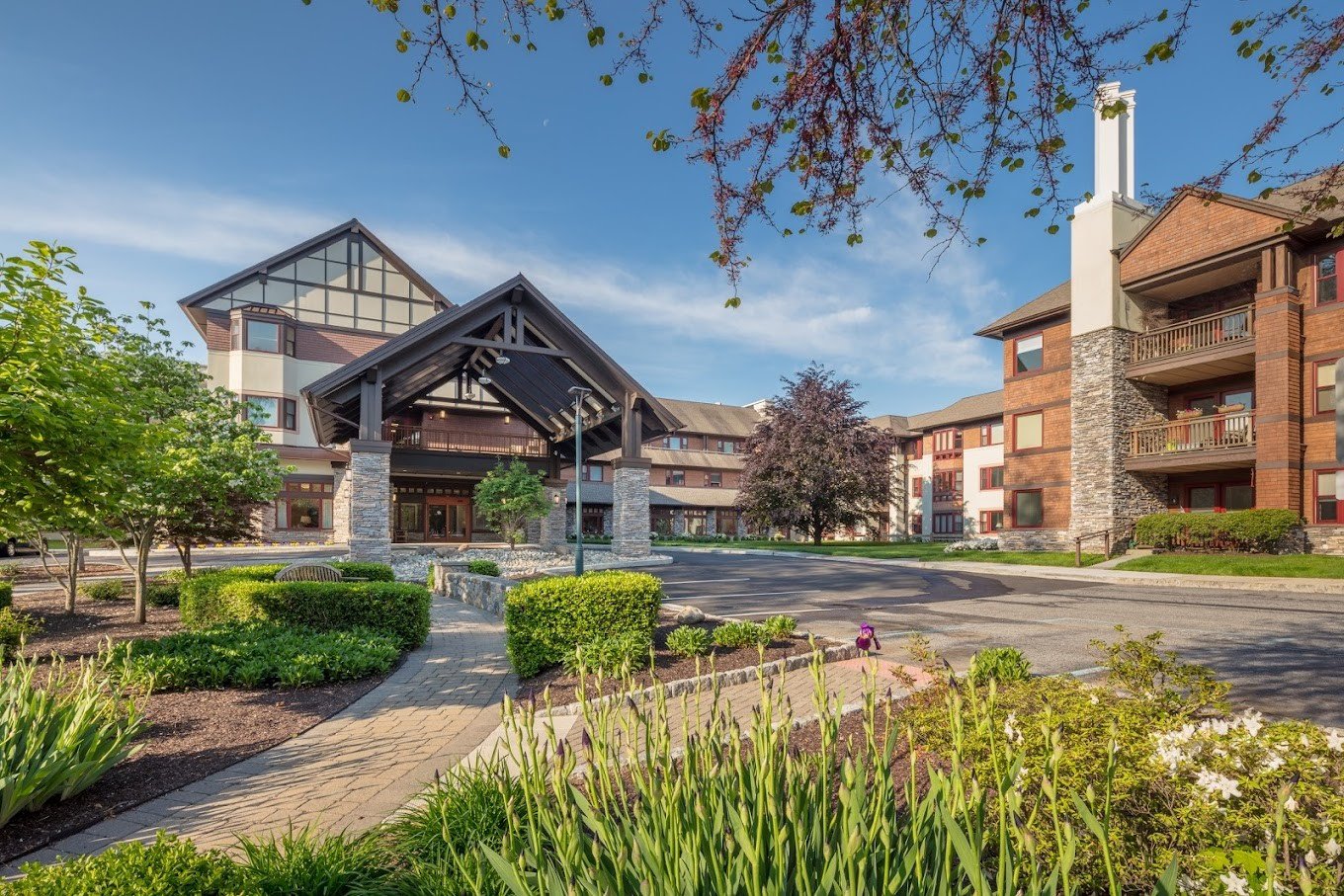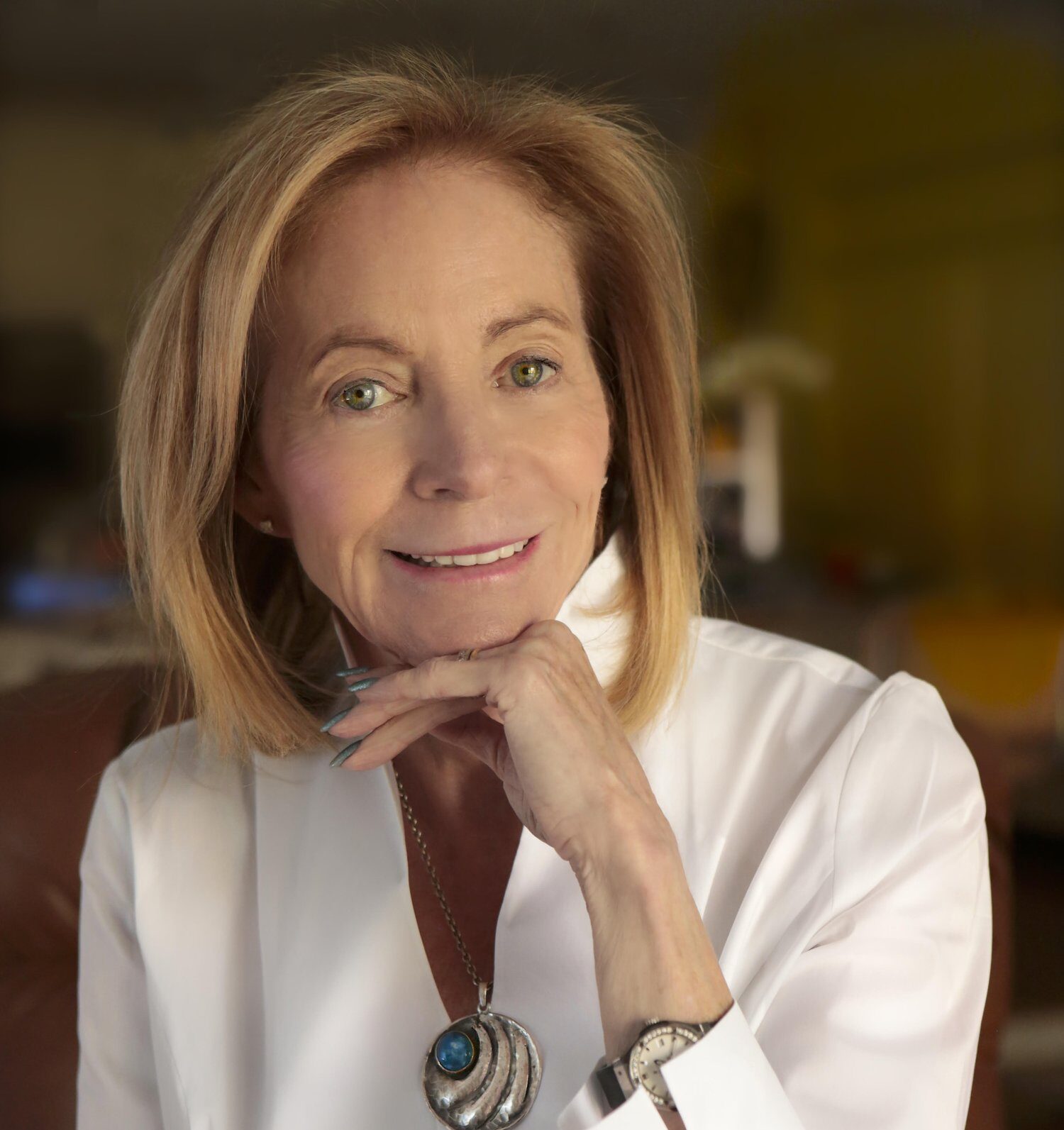Patricia Caldwell’s Story of ‘Health Care the Right Way’ at Edgehill
A wife shares her gratitude and her husband’s journey to recovery


Patricia Caldwell is a Wall Street veteran, an accomplished author of two novels and dedicated advocate for healthcare equality. With a career spanning three decades in investment management, including roles as a global partner at Invesco and appearances on CNBC, Bloomberg, CNN, and other business news channels, Patricia brings a wealth of experience and insight to her work in both finance and healthcare. Patricia is also a loving wife to John, and with his permission, she relays his healthcare recovery in “a story of skilled nursing and rehabilitation done to perfection.” You can read Patricia’s story ‘Health Care the Right Way’ on her blog or continue below.
Health Care the Right Way
So often we hear of the travails of patients in the course of medical treatment—from bureaucracy to overbilling, from complications regarding insurance to the inability to get an appointment, and on and on. On what seems like far few occasions, there are good news tales of health care provided at the highest level of quality. With permission from my husband, John, I am relaying a story of skilled nursing and rehabilitation done to perfection.
Sub-Acute Rehabilitation and Skilled Nursing Following a Hospital Stay
After a lengthy hospital stay in March, my husband was set to be released, on condition that he spend an undetermined period of time in a rehabilitation facility before coming home. The team at the hospital provided me with the names of half a dozen relatively local places on which I had to do research. I was familiar with the name of only one of them—Edgehill—not for its skilled nursing and rehabilitation services, but as a highly reputable independent and assisted living facility. The fact that it was a mere six tenths of a mile from my house gave it additional appeal.
Not surprisingly, the news regarding availability was not encouraging; however, the Admissions Coordinator, a gentleman named Brad, gave me a ray of hope. “We have a couple of people who might decide to leave in the next day or two,” he said, “and if any of them does, I will reach out to you immediately.” I thanked him and turned to my trusty invisible friend from childhood—my guardian angel. Please work your magic, I whispered. Two days later, Brad was on the phone. “I’ve got great news. A patient is leaving tomorrow and you can have the room. Do you still want it?” “Yes!” I nearly shouted and sent my guardian angel of seventy-five years a heartfelt “thank you.”
Settling in at Edgehill
When John arrived at Edgehill by ambulance late the following afternoon, we were met by Anna, the charge nurse for the evening shift. No five-star-hotel service in my decades of travel was as warm and as professional as she was. With a gracious smile and a take charge demeanor, Anna guided us through the process of “settling in.” Within minutes of arriving in a sunlit room with wall-to-wall windows on two sides, in strode a tall, broad-shouldered man. “Hi, I’m Garry, the nursing assistant.” His soft voice was full of confidence and watching the ease with which he attended to my husband was reassuring. A bear of a man, he was both gentle and firm, knowledgeable and competent. He spoke with a familiar accent—French, but not from France. My wanderlust always makes me interested in where people come from and once my husband was heading to sleep, I couldn’t resist the question. “What country do you come from?” “Haiti,” he replied and it all came together—from my many trips to that country almost half a century earlier. We talked about the Olafsson Hotel in Port-au-Prince and the hillside towns of Jacmel and Marigot, with their art galleries, packed with primitive-style Haitian paintings, exotic metal oil drum cutouts and exquisite fabrics. Garry had emigrated from the country in 1999 and was now a U.S. citizen. It was a heartening story—one that I would find out shortly was repeated over and over among the staff of Edgehill. Before I left for the evening, Brad, the voice on the phone that gave us the good news of an opening, dropped by to say “Welcome,” as did Christopher, the Health Care Administrator. And as I headed for the elevator around 10 o’clock that first night, Anna came up to me. “Here’s my telephone number. Call me any time – if you need anything at all.” I was touched and also fascinated by her accent. “Thank you so much,” I said, and then after a pause I asked, “And what country to come from?” This time it was the Philippines. Angels from around the world here in Connecticut to bring people back to health, I thought.
“A special army of people”
For the first few mornings, as I made the ten-minute pilgrimage on foot to Edgehill at 7:30, the daily newspapers tucked under my arm, I was apprehensive. Did John sleep through the night without a crisis? Will all the staff be as wonderful as Garry and Anna? It didn’t take long to realize and appreciate that the employees at the skilled nursing wing at Edgehill were a special army of people, dedicated to making the lives of their patient/residents as comfortable and as restorative as possible. Within a day or two, the kitchen staff were John’s new best friends—and mine, as well, since I had breakfast with him every morning and dinner nearly every evening. Within moments of my wheeling him into the dining room, his breakfast was served with a cheerful “Good morning”—cornflakes, orange juice, English muffin with the butter melted on top, and a hot mug of coffee. Hannah, a dance teacher from Ukraine, and her associate Svitlana, who made it over here during the early days of the Russian invasion of Ukraine, were often the first people we said “Hello” to, and within a few days we became friends also with Sharif and Kurshida, from Bangladesh and Cita from the Philippines and not long after with Jesus. Jonny, from the good old USA, brought the Wall Street Journal each morning to the table, and breakfast was never over until one of the nurses—often Sheila, also from Haiti or, on the weekends, Olivia from Ghana—brought John his medications, and spent a few extra minutes chatting with him. As I wheeled him back to his room, I enjoyed the aura of calm that permeated the entire floor.
Edgehill Chef Anthony’s Food “bursting with flavor”
Let me not give short shrift to the unseen forces behind the three meals a day that were served with such grace and cordiality. The food for the skilled nursing unit came from the same kitchen that served the healthy year-round residents who had their own separate living quarters and spacious dining room. While I never had the opportunity to meet the chef, I did some sleuthing and found out that his name is Anthony and that he has been at Edgehill since 2006. His soups were his “pièces de résistance”—from vegetable to beef barley, to chicken noodle, to cauliflower cheddar, and so many more—each one bursting with the flavor of homemade. (As someone who revels in making soups on the weekend, I speak with authority.)
Less than a week into John’s stay, during breakfast on a morning that was pouring down with rain, a cheerful blond woman came into the dining room. “Hi, I’m Dorota, your physical therapist.” John retorted, “I’ve been waiting for you. I hope you won’t go easy on me.” And that was the beginning of numerous morning visits with the therapist from Poland. The less visible office staff were also accessible at any time of the day—Rosella, who oversaw all the nurses, Marisol, the Cuban director of social work, Leah the psychiatrist, as well as the charge nurses’ stations with Sharon, Raquel, David and Anna. And let me not forget to mention the cheerful front desk staff—Serena, Beverly and Mike. When, halfway through his stay, John had to visit two doctors across town, it was Beverly who provided me with both paperwork and step-by-step guidance to ensure that his visits would be covered by Medicare, and it was Jamal who drove us there in what felt like an armored truck.
“Thanks to the “United Nations of caregivers at Edgehill”
There’s a “catch-22” in the skilled nursing facility at Edgehill, and for those who are aching to go home—in this case, my husband—it can be frustrating, but it actually makes great sense. The more a patient improves with physical and occupational therapy, the greater the benefit of continuing with the therapy. John was such an exemplary patient, that it was a full twenty-five days before he was discharged. On that final morning, just ten days ago, when the ever cheerful Serena came to conduct an “exit interview” of sorts, there was hardly a single issue that John felt could have been improved. The quality of the stay made it a poignant moment when we wished “good-bye” to the team that had cared for him with such diligence. I can’t bring this column to an end without adding a few more names of the most wonderful caregivers in the world: Mona, Emily, Erbin, Katrina, Serina, Aysha, Cora, Agathe, Kate, Madalina, Ahsleyne, Katiana, Esterina—who hailed from countries from around the world, including the Dominican Republic, Jamaica, Puerto Rico and those mentioned earlier. This column is written with immense gratitude and thanks to the “United Nations of caregivers” at Edgehill.